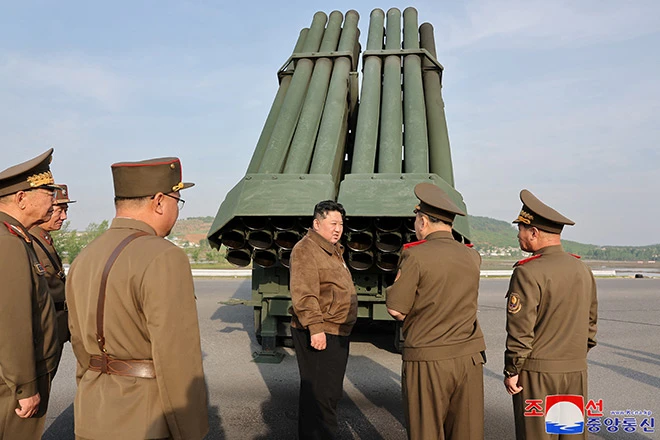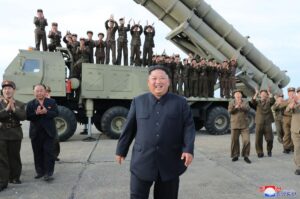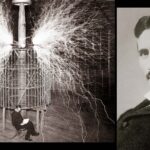Sure, here’s a detailed, 1000-word overview of Kim Jong Un, covering his background, leadership style, policies, and international relations:
Kim Jong Un: A Comprehensive Profile
Kim Jong Un is the Supreme Leader of the Democratic People’s Republic of Korea (North Korea), holding titles such as General Secretary of the Workers’ Party of Korea, President of the State Affairs Commission, and Supreme Commander of the Armed Forces. His rule, beginning in 2011 following the death of his father Kim Jong Il, has been marked by a blend of authoritarian control, military posturing, nuclear weapons development, and limited engagement with the outside world.
Early Life and Background
Kim Jong Un was born on January 8, likely in 1984, although the exact year remains unclear due to the secretive nature of the North Korean regime. He is the third and youngest son of Kim Jong Il and Ko Yong Hui, a Japanese-born dancer of Korean descent. He was largely kept out of the public eye during his youth, in line with the tradition of secrecy surrounding North Korea’s ruling family.
Kim is believed to have spent part of his childhood in Switzerland under a pseudonym, attending private schools in Bern. Classmates later described him as shy, basketball-loving, and somewhat introverted. He reportedly studied at Kim Il Sung Military University in Pyongyang and was groomed for leadership following the health deterioration of his father in the 2000s.
Rise to Power
Kim Jong Un’s emergence as successor was made public only in the last years of Kim Jong Il’s life. In 2010, he was given a series of important military and party titles, including four-star general, despite a lack of military experience. His appointment surprised many observers who had expected an elder brother, Kim Jong Nam or Kim Jong Chol, to succeed.
Upon his father’s death in December 2011, state media quickly referred to Kim Jong Un as the “Great Successor.” Within a short time, he consolidated power, assuming leadership roles in the Workers’ Party, the government, and the military, thereby becoming North Korea’s uncontested leader.
Consolidation of Power
Despite his youth, Kim demonstrated political ruthlessness early in his rule. He quickly removed or replaced many senior officials loyal to his father, often under charges of corruption or treason. The most high-profile of these was the execution of his uncle, Jang Song Thaek, in 2013—a man long considered the regime’s second most powerful figure. This move stunned the international community and sent a message to potential rivals about Kim’s authority.
He also reportedly orchestrated the assassination of his half-brother, Kim Jong Nam, in 2017, using a nerve agent at Kuala Lumpur International Airport in Malaysia. This act, widely believed to have been state-sponsored, eliminated a potential rival with better ties to the outside world.
Cult of Personality
Kim Jong Un continued the tradition of North Korea’s personality cult, rooted in the reverence of his grandfather, Kim Il Sung, and father, Kim Jong Il. While he adopted many of their tactics, Kim also carefully crafted a distinct image. He often appeared in public alongside military and scientific personnel, presented as a modern and dynamic leader.
Compared to his predecessors, Kim appeared more visible and active. He gave public speeches, toured factories and schools, and showed interest in economic development. State media cultivated a slightly more modern image for him, often highlighting his affinity for technology and infrastructure.
Economic Policy and Reforms
Upon assuming power, Kim launched limited economic reforms, allowing some small-scale private enterprise and semi-legal market activity. He initiated ambitious construction projects, including modern high-rise apartments in Pyongyang and recreational facilities like ski resorts and water parks. These changes aimed to improve living standards for elites and promote the image of a progressive North Korea.
Nevertheless, the country’s economy remained highly centralized, and international sanctions severely limited growth. Food shortages, chronic power outages, and inadequate healthcare remained widespread. Despite the image of modernization, economic self-reliance (juche) remained the official doctrine.
Military Policy and Nuclear Ambitions
Kim Jong Un’s most defining and controversial policies revolve around military strategy, particularly the development of nuclear weapons and intercontinental ballistic missiles (ICBMs). Under his rule, North Korea significantly expanded its nuclear capabilities, conducting several underground nuclear tests and launching missiles capable of reaching parts of the United States.
In 2017, North Korea claimed it had developed a hydrogen bomb and successfully tested an ICBM. These provocations triggered international condemnation, a tightening of UN sanctions, and a war of words between Kim and U.S. President Donald Trump.

North Korea’s nuclear strategy is seen as both a deterrent and a bargaining chip. Kim views nuclear capability as essential to regime survival, given the fate of leaders like Saddam Hussein and Muammar Gaddafi. However, these moves have deepened the country’s isolation and made meaningful diplomacy extremely challenging.
Diplomatic Engagement
Despite a bellicose start, Kim shifted to diplomacy in 2018. He held a historic summit with South Korean President Moon Jae-in and later met with U.S. President Donald Trump in Singapore, marking the first-ever meeting between the two nations’ leaders. These events raised hopes for denuclearization and potential peace.
However, subsequent summits in Hanoi (2019) and Stockholm (2019) failed to produce lasting agreements. Talks collapsed over sanctions relief and nuclear disarmament timelines. By 2020, dialogue had largely ceased, and North Korea resumed weapons testing.
Kim also cultivated relations with China and Russia, seeking economic and diplomatic support. His ties with Beijing are particularly crucial, as China remains North Korea’s primary trading partner and political ally.
Domestic Life and Public Image
Kim is married to Ri Sol Ju, a former singer who occasionally appears with him at state events. The couple is believed to have several children, although details remain unconfirmed. Unlike previous North Korean leaders, Kim has made some of his personal life public, including appearances with his daughter at missile launches in recent years—possibly signaling a future heir.
Physically, Kim has fluctuated in weight, leading to speculation about his health. In 2020 and 2021, periods of public absence sparked rumors of serious illness or death, though he later reappeared.
Human Rights Record
North Korea under Kim Jong Un continues to be regarded as one of the world’s most repressive states. Numerous reports from the United Nations and human rights organizations cite widespread abuses, including political prison camps, surveillance, public executions, and lack of freedom of expression, religion, or movement.
Defectors often describe brutal conditions, forced labor, and torture. Kim’s regime denies such allegations, calling them propaganda, but it remains one of the least transparent governments in the world.
COVID-19 and Isolation
The COVID-19 pandemic worsened North Korea’s isolation. In early 2020, the country shut its borders entirely, including trade routes with China. This severely affected the economy, leading to food shortages and stalling many development projects. The government claimed to have no COVID cases for a long time, though analysts doubt these assertions.
The pandemic years saw reduced diplomatic engagement and fewer public appearances by Kim. Nonetheless, his grip on power appears unshaken.
Legacy and Future Outlook
Kim Jong Un’s legacy is still in the making. He has demonstrated a blend of brutal authoritarianism and calculated diplomacy. While introducing slight economic liberalization and engaging in high-profile summits, he has simultaneously prioritized nuclear weapons and internal control.
Whether Kim will lead North Korea toward further openness or revert fully to isolationism remains uncertain. His regime’s survival seems tied to maintaining absolute power and nuclear deterrence, making meaningful change difficult without significant internal or external pressure.


